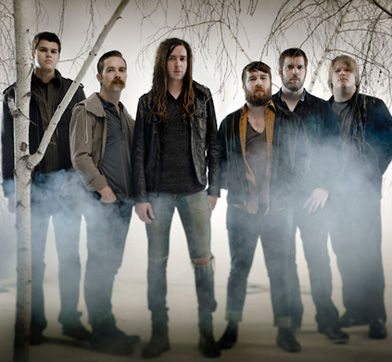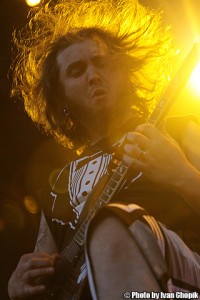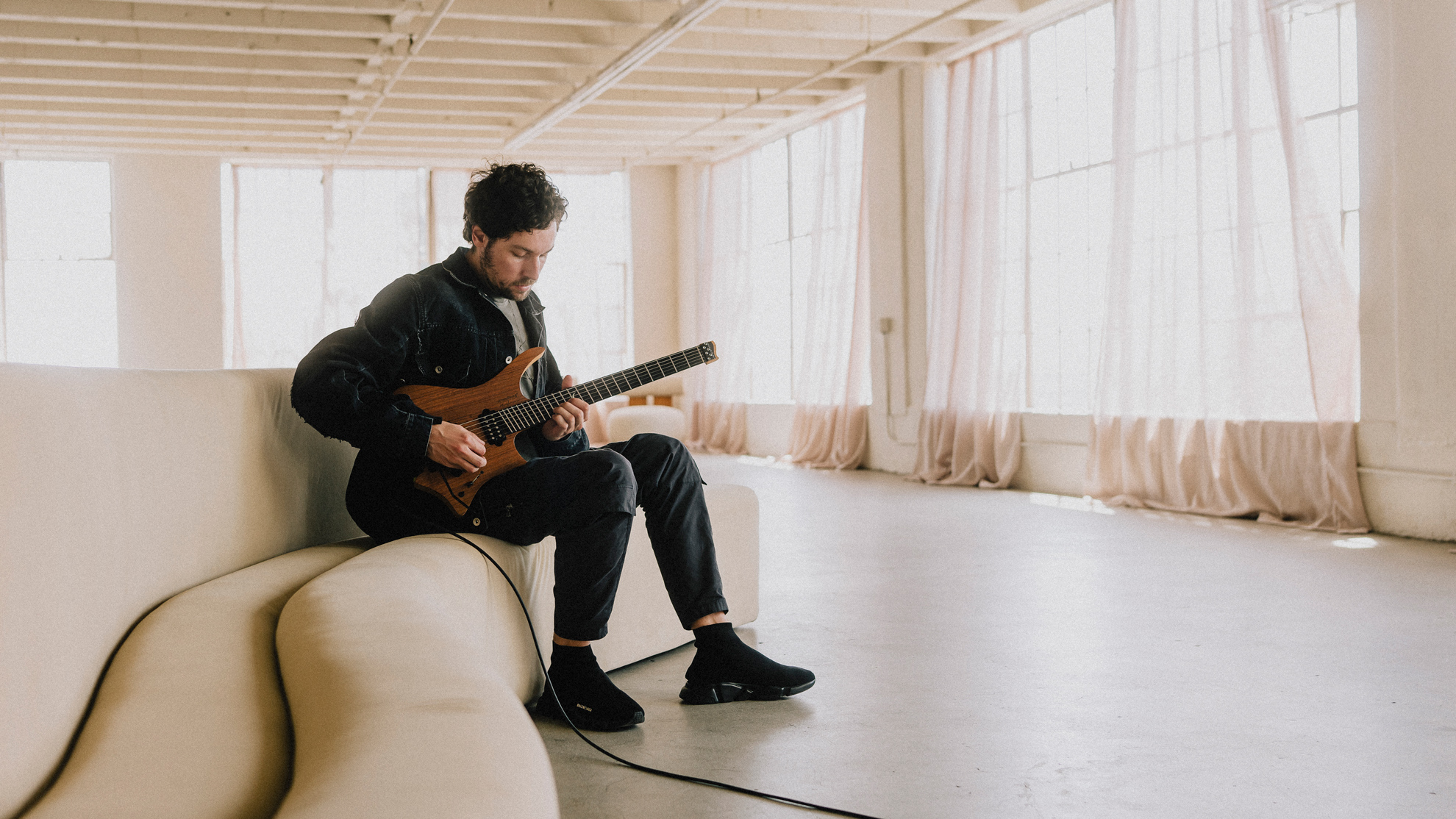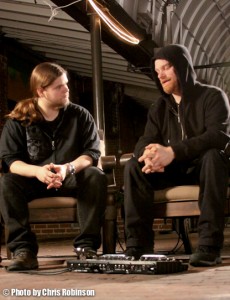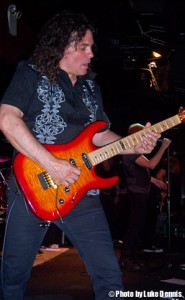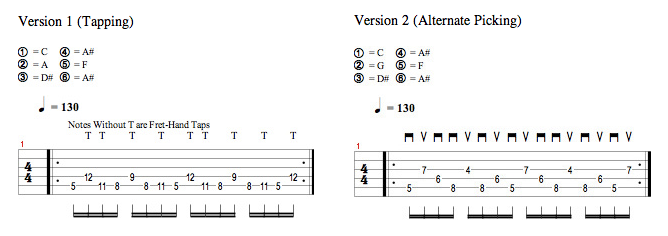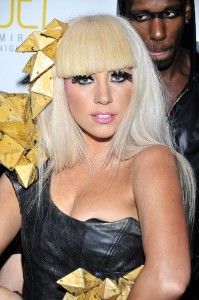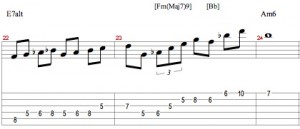Throughout their decade-long journey, Tampa, Florida’s Underoath have crafted a unique and ever-evolving style, securing them as one of the premier acts in today’s heavy music scene. 2010 was a turbulent year for the band with the departure of long-time drummer and clean vocalist Aaron Gillespie, which was followed by the subsequent recruitment of ex-Norma Jean drummer Daniel Davidson in time for the recording of the band’s seventh full-length album.
The resulting effort, Ø (Disambiguation), was released in September of 2010, and marked a new chapter in Underoath’s history by pairing darker and rawer, yet tightly-woven compositions with the infectious melodies and undeniably heavy groove that the band is known for. I had the opportunity to speak with the band’s two guitarists, James Smith and Timothy McTague, at the Worcester, Massachusetts stop of their headlining US tour with Thursday, Animals As Leaders, and A Skylit Drive:
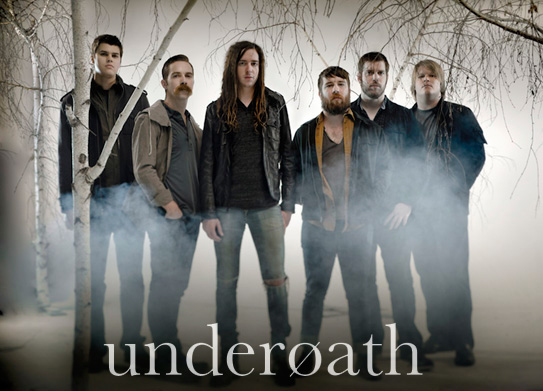
IC: Disambiguation – what does it mean to you guys? What’s the story behind the title, and how did you guys come up with that?
JS: When we were recording it in the studio, the idea originally came about of a self-titled record. We’d never done a self-titled, and there was nothing really popping out at that time of what to call the record. From there, it translated into a cover visual of just the Ø slash that the band is known for.
When it came time to do the art and the self-titled approach we’d agreed upon, I think Tim [McTague, guitarist] or Chris [Dudley, keyboardist] looked up the meaning of the symbol and disambiguation was one of the meanings for the actual symbol itself. So that’s kind of the crazy evolution, which isn’t all that epic or prophetic by any means. [laughs]
IC: How did that symbol come about? It’s been around for some time now.
TM: Yeah, six or seven years.
JS: I think it was in the cover art for They’re Only Chasing The Safety – the font of the Underoath Ø slash, that was the first time we had seen it. From there we latched on, and it became the symbol of the band.
IC: You’re well into this tour with a new lineup that everyone’s been talking about. How does it feel?
TM: It’s been good. Everything’s been positive, and all the bands that we’re out with are sweet dudes – Animals As Leaders and Thursday are awesome bands. It’s overall been just a really enjoyable experience, and it’s cool to see where we’re at, and where we sit with all of the changes that we’ve had and all the changes that are still going on. It’s definitely been a really positive and reaffirming tour of sorts.
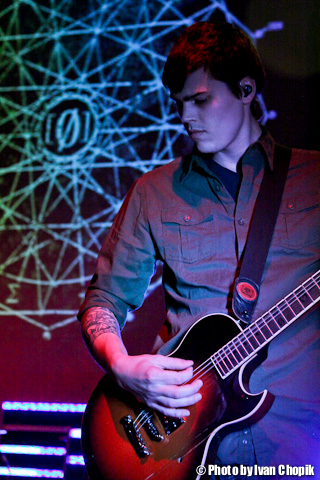
James Smith
IC: One thing I haven’t seen talked about much is how you two interact as guitar players in the band, in terms of how you write the parts and divide them up. Is there a particular type of riff that’s a Tim riff, or a James progression?
TM: We usually just write all of the stuff in practice and in the studio together in the same room, for the most part. A lot of the big chords and structures and stuff sometimes will get written by one person at home, but a lot of the overdubs and all of the lead stuff, on this record, were very thought out.
James and I went through a bunch of different ideas with Matt [Goldman], our producer, sitting and going: ‘What about this?’ just chipping away at it until it felt right. As far as live, I do some singing, so depending on what parts crossover to singing, that’s kind of how we divide up guitar parts. There’s not a specific method or a ‘Tim this’ or a ‘James that,’ I don’t think.
IC: Did you feel any additional pressure in the writing of this album, in light of the recent lineup changes? Were you looking to make a mark and tell the fans that everything is moving forward?
JS: No, I think we just wanted to have the best final product, and the most creative final product that we can contribute to the song, from a songwriting stance. Not being overbearing or too much, but still being cool and kind of different. When it came time to record guitars, we really made sure every riff or lead or part was what needed to be there, and was the right thing to be there.
IC: You’ve loosened up about being on the grid and making things overly perfect. Those are subtle differences, but at what point did you think that was something you’d want to apply to this record?
JS: I think it’s what we have always been about, but have never been able to go as far as we’ve wanted to with on any of our recordings. We definitely don’t like that chopped-up, super tight metal sound, but usually our records end up getting edited that way to some extent, regardless. Anytime we can capture a little feeling or looseness, we go for it.
IC: It feels more like a live record – it definitely captures a bit of the vibe of the show.
JS: We definitely try to convey that.
IC: How do you guys adapt to writing with a keyboard player, and getting all of the electronic bits in there? There are more electronic parts that are integrated into the grooves on this album.
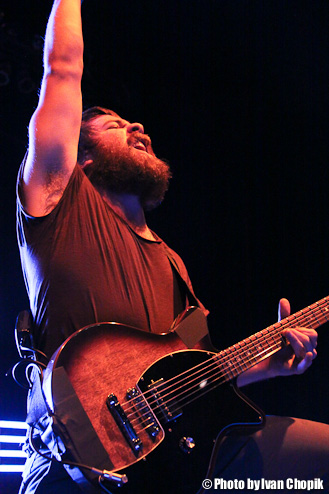
Timothy McTague
TM: I don’t think we really adapt to it. Chris was in the band before any of us, so we kind of joined with the keyboard player. Chris has evolved from playing string parts over metal riffs to really building parts and foundations of songs, and we encourage that. We try to really exploit that aspect of our band as much as possible. There are usually one or two electronic bass songs solely on each record that he does mostly himself.
Yeah, he played a much bigger role in being part of the percussive rhythm section instead of just putting a lot of stringy leads on top. So it’s not so much adapting, but it’s Chris growing and not only hearing ideas, but figuring out how to make those ideas happen on his end, and not be like: ‘Hey, I have this idea for this guitar part.’ He has ideas with electronics and stuff.
JS: When we write collectively, there’s usually a part that is more defined by a guitar idea or is more defined by a keyboard or synth idea, and those definitely will take the lead for certain parts. It’s just about whose part’s cooler and works better for the song and what we’re trying to do.
TM: Sometimes we’ll even have a guitar part that just doesn’t sound right, and we’ll say: ‘We’ll try it on a keyboard patch.’ He’ll find a keyboard patch that’s like: ‘Oh, that’s the guitar part we were trying to fit in, but it fits way better with a patch of yours’ or vice versa. It’s just an extension of the band. It’s an equal part of the writing and the band process. The same way you would envision what vocals would sound like over this part, we envision what keyboards will do or won’t do over this part, and it structures around that, as well.
IC: I noticed that the album strays from the really melodic, standout choruses of past albums. It leaves behind some of the contrast between chorus and screaming parts in favor of the more flowing combination of the two that’s on this record. Was that something that you had in mind going in, or is it something that you’ve evolved into at this point?
JS: It’s something we’ve evolved into, and the contrast was something I think we were all kind of over, too. We have always as a band tried to be songwriters and not stupid musicians, so whatever makes a song sound the best is always our approach, and it goes first. I think also that a lot of it has to do with the fact that Spencer [Chamberlain] does all of the vocals now himself. It’s all his mindset and how he sees it, so it naturally flows the way that it turned out. Before with Aaron, [Gillespie, former drummer and vocalist] it would be Aaron stepping in for a part and the way he saw it, which was obviously different than Spencer. So you got those contrasts that were cool, but I think it’s something we were past.
IC: Have you kept in touch with Aaron at all since you’ve been on this tour and things have been moving forward for you guys?
JS: Chris saw him right before we left. Chris still sees him every now and again, because their wives are friends. I haven’t seen him in quite some time. It’s cool, everyone’s cool, but we’re all doing different things.
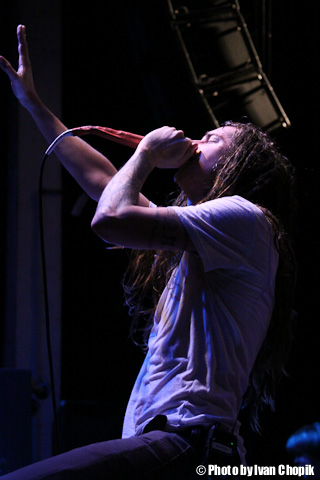
Spencer Chamberlain
IC: Looking back, what was the listening path for you in getting into heavy music? I feel that everyone has a number of bands that were critical in opening them up to that world.
TM: For me, it was a band called Zao and Living Sacrifice, and just growing up with local hardcore shows, as well. I remember getting Embodiment 12:14 and Zao and Strongarm’s records when I was really young, and that being the first actual metal/hardcore stuff that I listened to.
JS: For me it was Hopesfall, when they released No Wings To Speak Of. I had heard Embodiment 12:14 and Zao, but I’d never attached to them at that point. That Hopesfall record just opened up the whole world to me, and I was able to find a path through that.
IC: What are you listening to now?
JS: The last two records that I bought were this band Brandtson, they had a record years ago that I bought on iTunes not too long ago just for the memories. Ryan Adams put out a new record of B-sides – it’s not that good. That’s the last two records that I bought. And Radiohead, but I haven’t gotten that yet.
TM: I bought the new Radiohead and the new Kanye West. Those are the last two records I bought.
IC: Are you into gear much?
JS: A little bit. My attitude towards gear is to keep it simple and clean. My guitars – I take out the volume pots and I only use a bridge pickup, and have an Ibanez Tube Screamer in front of a Marshall JMP.
IC: That’s not as high-gain of an amp as I would have expected.
JS: It’s more than enough gain.
IC: You crank it up?
JS: Yeah, I definitely push the tubes very hard. It’s awesome. It’s kind of classic, and very easy.
IC: That’s definitely something different from the more common Triple Rectifier route.
JS: I feel like when you get into those kinds of circuitries, it’s just too many areas that can go wrong, and I’m not a big technically minded ‘I can fix anything’ kind of person, so the cleaner and simpler it is, the easier it is to work around problems.
TM: I play a normal guitar through a Tube Screamer into a Marshall JCM800. I also have a Line 6 Echo rack that’s MIDI-controlled through my effects loop – which I’m not loving right now. I think I’m switching to a Line 6 M13 Stompbox Modeler for the next tour. I do a lot of the delay and echo and tremolo parts, so I have to have some sort of device that can replicate a lot of delays in different time signatures and whatnot. Beyond that, it’s just a volume pedal, tuner and then out.
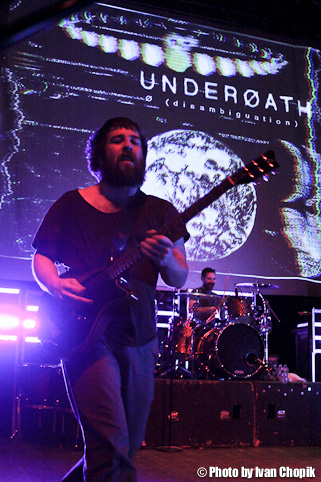 IC: What’s something that you’ve never mentioned in an interview before?
IC: What’s something that you’ve never mentioned in an interview before?
TM: There’s a song on our new record called ‘Who Will Guard The Guardians?’ and we wrote it in three hours. That’s not a big: ‘Oh, I’ve never said this! I’ve been holding it in for ten years!’ but I don’t think we’ve mentioned it.
IC: How long does it typically take to write an Underoath song?
JS: It varies.
TM: From a few hours to forever.
JS: Some of them could be something we started working on in soundcheck, and it will involve seven to eight different times and then completely change again once we get to the studio – which is how that song went.
TM: The end of that song has been around for like four years. We were writing this thing, and we thought: ‘What if we threw in that one we used to play?’ It was a live interlude that never went anywhere. So some stuff just sits around the cutting room floor for a few years, and some stuff comes together instantly.
IC: You’ve both been touring for quite a while now [Tim joined Underoath in 2001, James in 2003]. Is touring something that still wears on you more and more with time, or are you completely comfortable with it at this point?
TM: I think it wears.
JS:I think it’s both at the same time. I’ve always looked at touring as a weird dynamic of best thing ever or worst thing ever, and I think it kind of applies down the whole line in every category. There’s never really the middle ground. It’s either: ‘This is the sweetest thing ever!’ or ‘This is not my day.’ I’m definitely comfortable and used to being on tour. It’s not weird being on tour – but at the same time, it’s not as sweet as being at home. I imagine if I was home all the time that could be more weird than being on tour all the time at this point. It’s good. [laughs]
TM: Yeah. Nothing’s drastically more miserable or any better than what it was. I think as you get older, at least for me, there’s more things that I want to do outside of touring, so when tours come up it’s like a big rearranging with wife, kids, a dog and a house to take care of. It’s a lot less of a ‘pick up and go and not care about things,’ so it becomes more stressful than it used to be. There’s definitely a balancing act there.
IC: Thinking back over those years, are there any moments you can think of that stand out – highlights and lowlights?
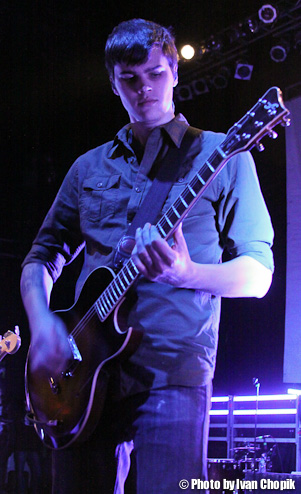
JS: The first time I played Skate & Surf. That show was awesome, and one of the first highlights. Our first time going to Europe was definitely a lowlight – a miserable, awful time that has left a bitter taste in every one in the band’s mouth ever since.
TM: To this day.
JS: No one gets excited about Europe. It was poorly organized, we didn’t know how to adapt to the area, the food was terrible. The shows were all great…
TM: But they weren’t good enough to make up for everything else that was going on.
JS: Pretty much.
TM: For me, our first official headlining tour in 2005 was probably one of the best and most real tours we’ve done to this day. That was with The Chariot, These Arms Are Snakes and Hopesfall. It was the first time we ever went out and did a full-fledged U.S. headlining tour. The response was insane, the turnouts were beyond expectations and everything about it was really cool. All the bands on it were great bands and great people to hang out with.
IC: If you weren’t on tour or in a band right now, what do you think you would be doing?
JS: I’m going to school to be an accountant right now, so maybe I’d be done with that at this point. [laughs]
TM: I don’t know what I’d do if I wasn’t in the band, because everything else I do around it is because I’m in the band. If I was never in the band, I have no idea where I’d be.
IC: Do you have any particular roles in the band outside of playing your instruments?
TM: James works with our accountant and manages a lot of that stuff.
JS: I think both of us are the business end of Underoath, and then Tim is also involved with the visuals, as well. He’s done quite a few of the projections, and Daniel [Davison, drummer] does that, as well. Also, all of our stuff runs off of computers – our lights and projections. He knows the programs and has set that up for us.
IC: Is there any advice that you can give to upcoming bands trying to make their mark on the industry?
JS: Just be having fun doing it. When it turns into a job and that’s all it is, it is no longer awesome to be in a band – it’s work. Know that you’re in it to be creatively fulfilled and to enjoy hanging out with your friends and playing music. Once that leaves from your band, you probably shouldn’t be a band anymore.
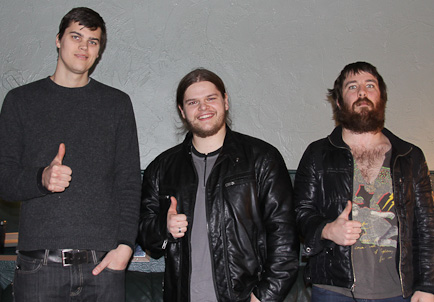
James Smith, Ivan Chopik, Timothy McTague
TM: Don’t have any major goals. For us, we didn’t have any goals, so everything that happened was natural and it wasn’t something that we were striving for. I think in a lot of ways, if you get into expectation mode, you get let down all the time and it just breeds not-good vibes.
We never set out to be a big band, or as big as we are. We never thought we’d be on a bus. Taking all that in is really cool, because it’s not just a thing that you’ve been working for and you’re like: ‘Finally I got this – moving on.’ It’s something where everything we have is beyond what we ever imagined.
Just like James said, try to stay focused on having fun and doing what you love, and as long as you can afford to do it, then do it. If you can’t, then don’t. But don’t compromise a lot of stuff and turn it into work, because there’s a lot better ways to spend a month gone than doing a bunch of stuff and compromising a bunch of things that you feel really bad about compromising for whatever you can make on that tour. [laughs] If it’s turning into work, then just go get a real job. It starts out as a creative art form for most people, and it should stay that way and not get convoluted with a lot of the other stuff.



